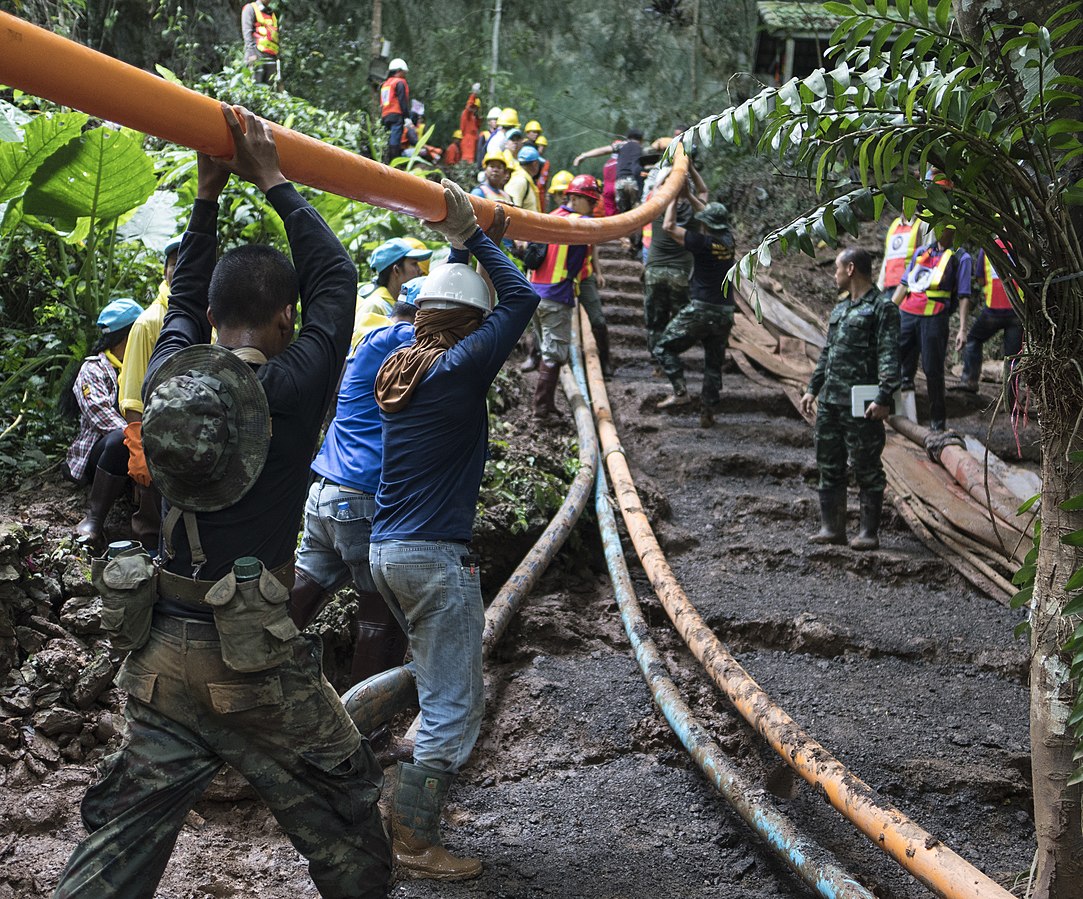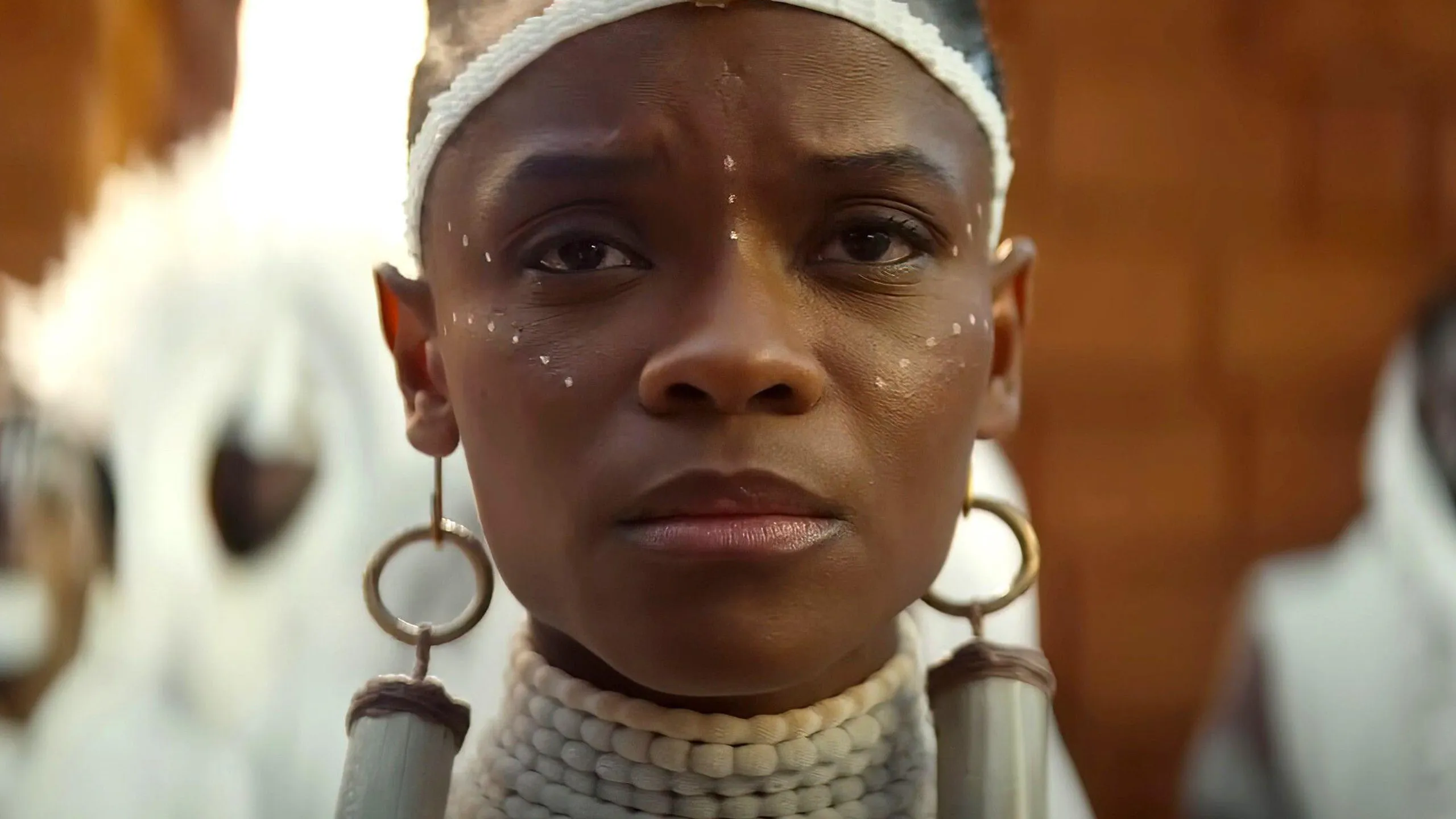
Taking back the Thai cave rescue story from Hollywood’s exploitative grasp
Siobhan Lawless
22 Aug 2018
image from Wikimedia Commons
It was the rescue operation which arrested the world’s attention: a mission to free twelve young football players and their coach from a cave in the Doi Nang Non Mountains, after heavy flooding led them to be trapped there for 17 days. It was a real life narrative Hollywood couldn’t wait to get its hands on, even if it meant doing so at its victims’ expense.
With four out of the 12 players and their coach still to be rescued and the world concerned about the safety and welfare, Hollywood producers had already arrived at the rescue site and were conducting preliminary interviews. Michael Scott, the managing partner and CEO of Pure Flix, a faith-based production and distribution company, revealed his intentions to Sky News, stating that he wants to make “a major Hollywood film with A-list stars” about the rescue operation, with an estimated budget of $45 million. I couldn’t decide which I was more appalled by: the timing of such an announcement, or the mainstream media’s failings to condemn its insensitivity.
While Scott justified his personal connection to the project, revealing he had assisted with the rescue efforts at Chiang Rai and his wife had grown up with the Thai Navy Seal who tragically lost his life during the rescue, I couldn’t help noticing the uncomfortable duplicity between Scott’s words and actions. Despite this personal connection, his behaviour was self-indulgent, emphasising in Pure Flix’s Facebook announcement how personal the story was and how excited he was to tell it, at a time when the narrative shouldn’t have revolved around him. It was equally hard to believe in Pure Flix’s co-founder David A.R. White’s claim that “it is not our goal to exploit this situation in any way, but to honor all those that are involved”. At that time, the biggest honour for families would have been reuniting with their loved ones; the biggest honour for the divers would have been bringing the boys out alive. Scott’s initial announcement came at a dishonourable time when neither’s safety was assured. When his announcement and timing was challenged, Scott’s co-producer Adam Smith simply stated: “There’s going to be other production companies coming in, so we have to act pretty quickly.”
Smith wasn’t wrong, as a second film was announced the next day by Jon M. Chu, director of the recently released film, Crazy Rich Asians. Chu reported he was teaming up with Ivanhoe Productions to produce their own rescue film. In what seemed to be a direct response to Pure Flix’s announcement, Chu tweeted: “I refuse to let Hollywood #whitewashout the Thai Cave rescue story! No way. Not on our watch”, demanding for the story to be approached “right and respectfully”. To validate their production’s authenticity, Ivanhoe Productions’ president revealed their company was in negotiations with Thailand’s government and Navy to develop a film revolving around the trapped boys, their coach and local collaborative rescue efforts.
Talks of all these Hollywood films seemed too much, too soon. These men were robbing survivors and their loved ones of much-needed time to process this traumatic ordeal. But events were unfolding so rapidly that it was really becoming a case of reclaiming a narrative that Hollywood was trying to steal, or taking a step back and watching the real heroes of this story become footnotes.
Chu’s concern about whitewashing is a very valid one – just take Scarlett Johansson in Ghost in the Shell, Angelina Jolie in A Mighty Heart or Ben Affleck in Argo. We’re all too familiar with the white saviour narrative which implies people of colour are incapable of saving themselves, rendering them secondary characters in their own story – think Freedom Writers, The Help, The Blind Side and 12 Years A Slave, to name just a few. Chu is right – it’s almost certain that a Hollywood remake of the Thai cave rescue would be given this treatment. If there’s any hope to be drawn from this ongoing competition to depict the rescue on the big screen, could it be that Chu’s adaptation prevents yet another Hollywood film from disempowering its non-Western heroes and silencing their voices?
Six production companies were fighting for film rights to retell this tale, including five international and one national production company, just one fortnight on from the Thai cave rescue mission . Due to this unprecedented influx of interest, Thailand’s Minister of Culture, Vira Rojpojchanarat announced the formation of a government committee, tasked with overseeing these planned productions and their accuracy. Rojpojchanarat stated: “The committees will be concerned about the accuracy of the story, the rights of the [team], the rescuers and other related agencies, as well as the image of Thailand. They will also be concerned about the impact of film production to the film locations…We are pleased to support both Thai and international film productions to make a movie and documentary on Mu Pa [Wild Boars football team] if they follow Thai laws.”
Bringing the Thai cave rescue to the big screen will by no means be easy and these film production companies will face multiple challenges. Filmmakers will need to secure the rights from each of the boy’s families, the coach and any rescuers they intend to portray. British childhood psychiatrist Rebecca Sheriff recently spoke about the long-lasting effects of the victims’ ordeal, advising a policy of “watchful waiting” to unravel the boy’s vulnerabilities and experiences, and enable them to rely on their established social networks, such as friends and families, to discuss their ordeal when they’re ready – not with strangers or film crews. Sheriff cautioned that pushing the boys into talking about their ordeal too soon risked re-traumatising them. While it would be comforting to think Hollywood would give the boys all the time they needed until they were ready to share their experience, the rapidity of Hollywood’s actions so far shows a worrying disregard for this.
Once the filmmakers have obtained first-hand accounts, other questions will follow: finding potential partners and investors to fund the production costs, before – most importantly – seeing if the films will adhere to the special government committee’s film laws. Regardless of these formalities, we need to remind ourselves to keep calling out Hollywood and its insistence on trying to dominate narratives from marginalised, non-Western communities in order to exploit them for monetary gain.









